Empowering Women in STEM: The Power of Mentorship and Innovation
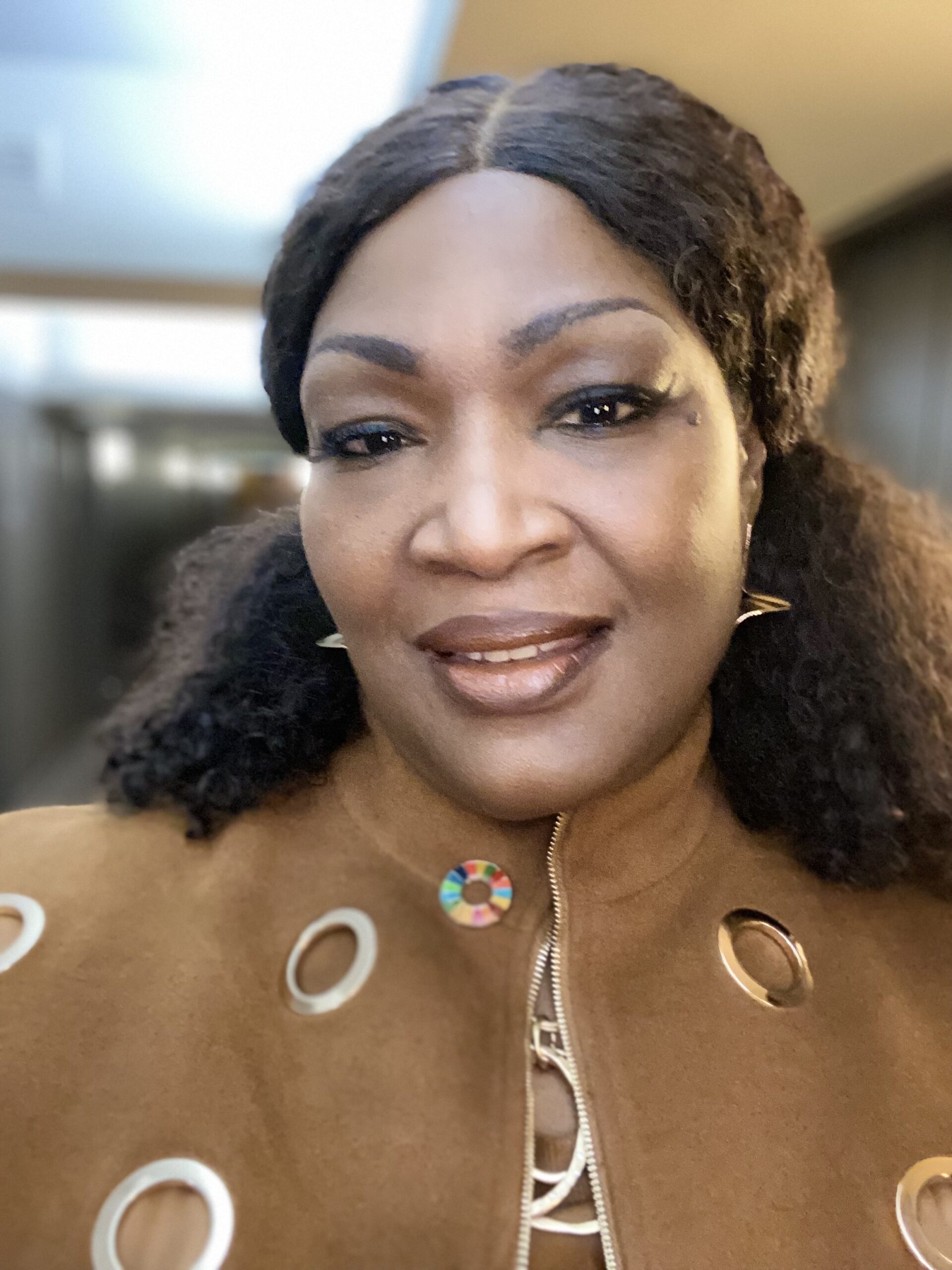
Lady Tee Thompson
Global Goals Ambassador & Gender Equality Advocate
Participating as a delegate for UNA-USA during CSW67 events, spanning from high-level UN sessions to parallel events, from in person to virtual sessions, to tenured thought leaders to only youth-led panels. I partook in the opportunity to actively listen, attentively learn and blather in dialogues with global and local experts, NGO’s and government leaders about gender equality. Correspondingly, I learned about its impact on women in Science Technology Engineering and Science (STEM). Although women have made some progress towards gender parity in science, technology, robotics, the arts, engineering and mathematics related fields, they still face significant hindrances. These obstructions range from career advancement to mentor shortages and role models. In order to achieve gender equivalence in all sectors and spheres of life, mentoring requires reshaping to assist women and girls.
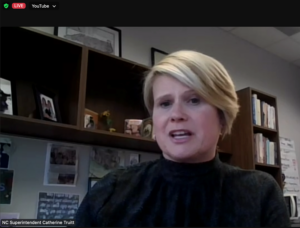
According to UNESCO, only 35% of STEM students globally are women, and this figure drops to 28% for female PhD students. Women are also underrepresented in STEM leadership positions, with only 24% of the global STEM workforce female. Per high school students from the UN Model Club at Triangle Math & Science Academy in North Carolina, these statistics reflect the uphill battle females face in science, technology, & arithmetic fields. Their session “The Role of STEM Education in Achieving Gender Equality: Perspectives of Youth” was a stellar illustration of the impact of positive mentorship. Both the North Carolina Superintendent, Catherine Truitt and the club’s advisor, Sherma Pankhani followed the charter of this deliberated dialogue facilitated by schoolchildren.
Among the major factors contributing to this gender disparity is the persistent bias against women across industries. It can be subtle, such as the underrepresentation of women in textbooks or the use of gendered language in job descriptions. McKinsey estimates that if women participated in the economy at the same rate as men, it could add $28 trillion to global GDP by 2025. As a result, the digital divide has disproportionately hindered the educational and professional advancement of girls and women, especially during the COVID-19 pandemic.
The importance of mentorship and role models in addressing these challenges and supporting women and girls in STEM cannot be overemphasized. By providing guidance and support, mentors help females overcome obstacles, navigate their careers, and shatter the glass ceiling. The significance of mentorship cannot be overlooked and many successful women in STEM have cited mentor guidance as critical to their success.
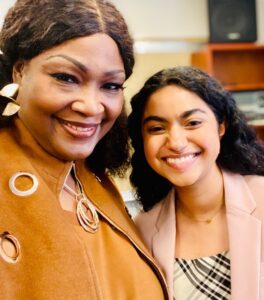
One innovative approach is Reverse Mentoring reverberated in the course of UNA Women’s Group Parallel event, “Women What Women Need: Healthcare Innovations & Technologies”. What is Reverse Mentoring? This methodology is where mentees provide valuable insights and knowledge to their mentors, especially in areas such as technology and social media. Anaya Bhatia, a panelist and GirlUp Teen Advisor, is not breaking the proverbial “glass ceiling”, she is “disintegrating the building” where the ceiling once resided – for social justice that impedes girls’ skills, rights, and opportunities to be leaders. By teaching their mentors the latest trends and platforms and helping them navigate new tools, they are providing them with fresh perspectives on their work.

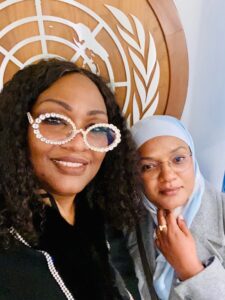
Another mentoring method is Diversity and Inclusion Training. Mentors receive training on diversity and inclusion from mentees, including best practices and strategies for creating an inclusive work environment with increasing cultural, social, racial and gender awareness. Fatma Abdalla, (one of thousands of Young African Leaders Initiative (YALI) mentees of mine) from Lamu, Kenya, who attended the UNA Women’s Group session, praised the cultural and generational inclusion that contributed to the success of the event. In addition, she points to how “promoting diversity in hiring and promotion, creating safe spaces for underrepresented groups within female workforce and educating mentors on unconscious bias transformed her career advancements”. Overall, diversity mentoring is a powerful contrivance for an extraordinary inclusive and supportive work environment where all can thrive.
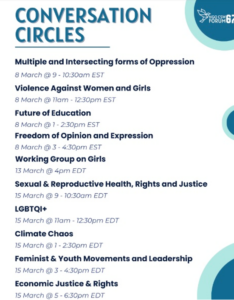
Reverse Feedback is an inventive approach, where mentees can provide feedback to their mentors, including constructive criticism and suggestions for improvement. I learned my most valuable lesson during CSW67 from Ford Foundation’s ten virtual Conversation Circles about seeking reverse feedback. It was my “coachable” moment when I realized exactly how to effectively support mentors, in understanding further how they are perceived by their mentees and identify areas where mentors blossom based on their feedback of mentorship. A guidance game changer to the ideation stratagem of developing future leaders!
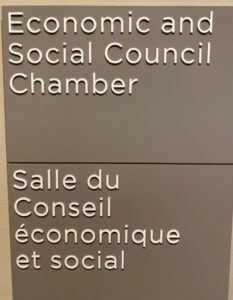
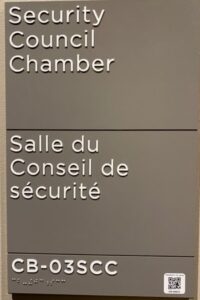
Creating intergenerational collaborations can also be an innovative approach that brings together perspectives and experiences of mentees and mentors to work on common goals. Mentoring circles, joint projects, and collaborative teams can be used in this way. The advantage of this is that the younger generation can learn from the older generation, and vice versa, leading to the development of a mentoring culture and the creation of role models for the future. For the period of CSW, chatters outside the galleries of the Security Council Chamber, Trusteeship Chamber and Economic and Social Council Chamber weave the storyline for intergenerational interaction. Assume the Security Council mandates mentoring circles of female experts and consultants. It would revolutionize international peace and security.
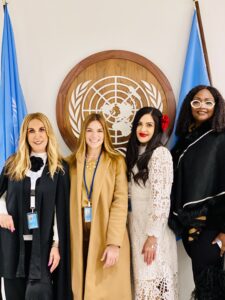
In STEM fields, gender bias is widespread, with women facing significant impediments, such as deficiency of mentorship and role models. It is communal for women to experience both the Matilda effect, where their contributions are overlooked and attributed to men, and the Maternal Wall bias, where women are stereotyped as less committed after they have children. Women are underrepresented in STEM fields, comprising only 28% of female PhD students globally and 24% of the global STEM workforce. The presence of female role models and mentors universally is essential for overcoming these biases and promoting gender equality.
Last but not least, Skill Sharing is an operative mode for overcoming these biases by allowing mentees to distributor their expertise and knowledge with their mentors. In addition to teaching their mentors new techniques, tools, and emerging fields, mentees can aid advisors staying relevant and up-to-date in their fields. As a result, not only is the gap between generations bridged, but also varied gender biases may be offset, ensuring that all individuals have equal opportunities to advance and succeed in STEM fields. Modestly, skill sharing is synonymous to the “Golden Rule” and embodies the synergy of CSW. Why? The unifying harmony of all activities of CSW67 ensued gender equity, equality and inclusion, this is inscribed into a vestibule at the United Nations as a half-ton sized mosaic, “Do Unto Others as You Would Have Then Do Unto You”.
Reflection as a delegate, role model, mentor and advocate formal and informal shared experiences of mixed perspectives, ages, nationalities, creeds, faiths, and color are pre-requisites to bolster females.

In conclusion, by addressing gender bias and providing mentorship and role models for women and girls everywhere, we can create a more equitable and just society for all. Adopting CEDAW, a comprehensive international treaty that prohibits discrimination against women and promotes gender equality, is another step towards promoting gender equality in the US.



